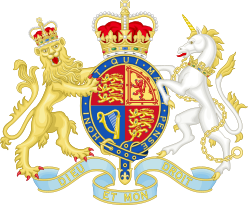 | |
| Presented | Wednesday 27 October 2021 |
|---|---|
| Country | United Kingdom |
| Parliament | 58th |
| Party | Conservative Party |
| Chancellor | Rishi Sunak |

The October 2021 United Kingdom budget, officially known as the Autumn Budget and Spending Review 2021. A Stronger Economy for the British People, was a budget statement made by Chancellor of the Exchequer Rishi Sunak on 27 October 2021. [1] It was the third and final consecutive budget delivered by Sunak before his resignation in July 2022. [2]
Contents
Many of the announcements to be made in the budget were previewed before budget day, drawing criticism and anger from the House of Commons. In response to the criticism, Sunak said the budget "begins the work of preparing for a new economy". [3]
